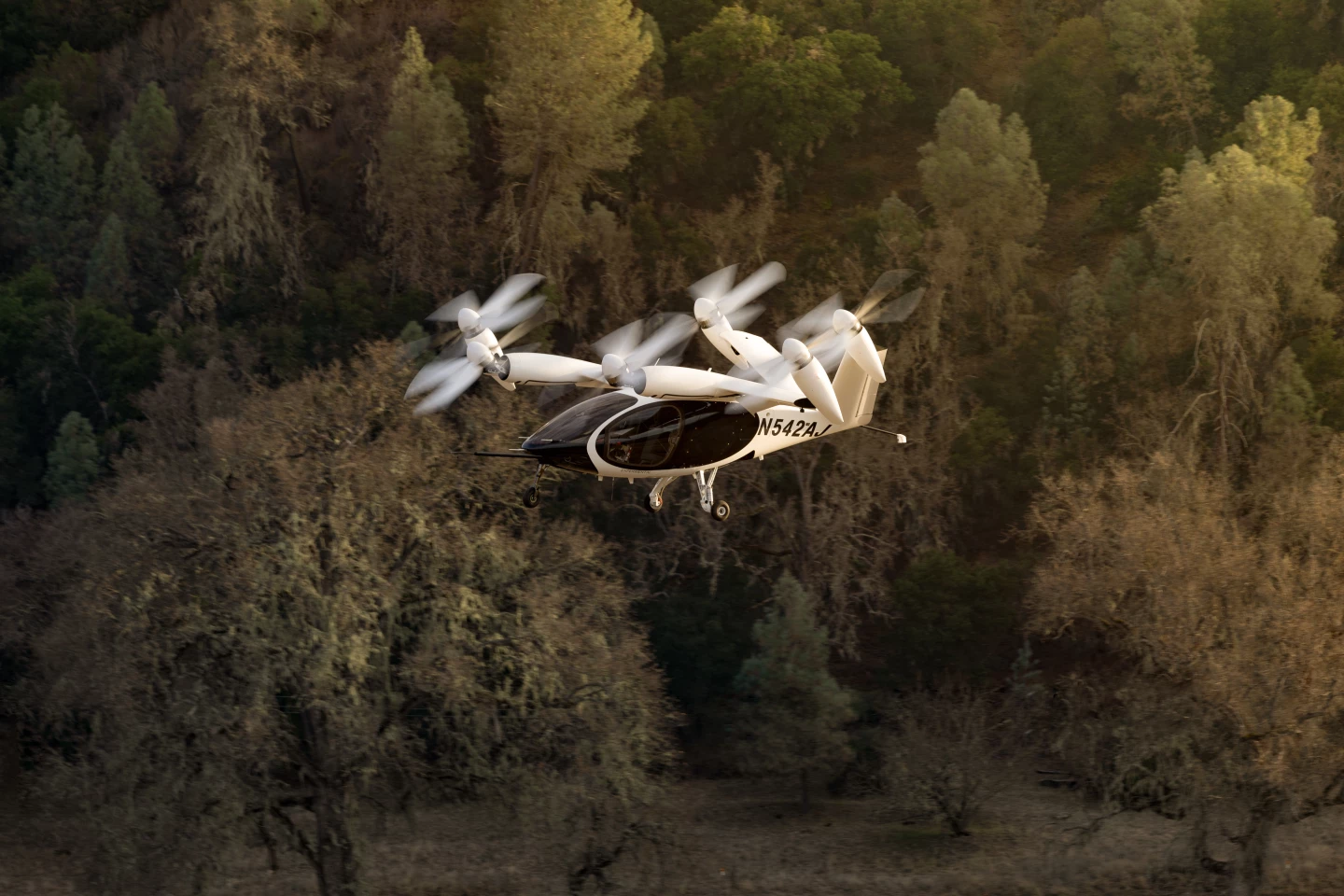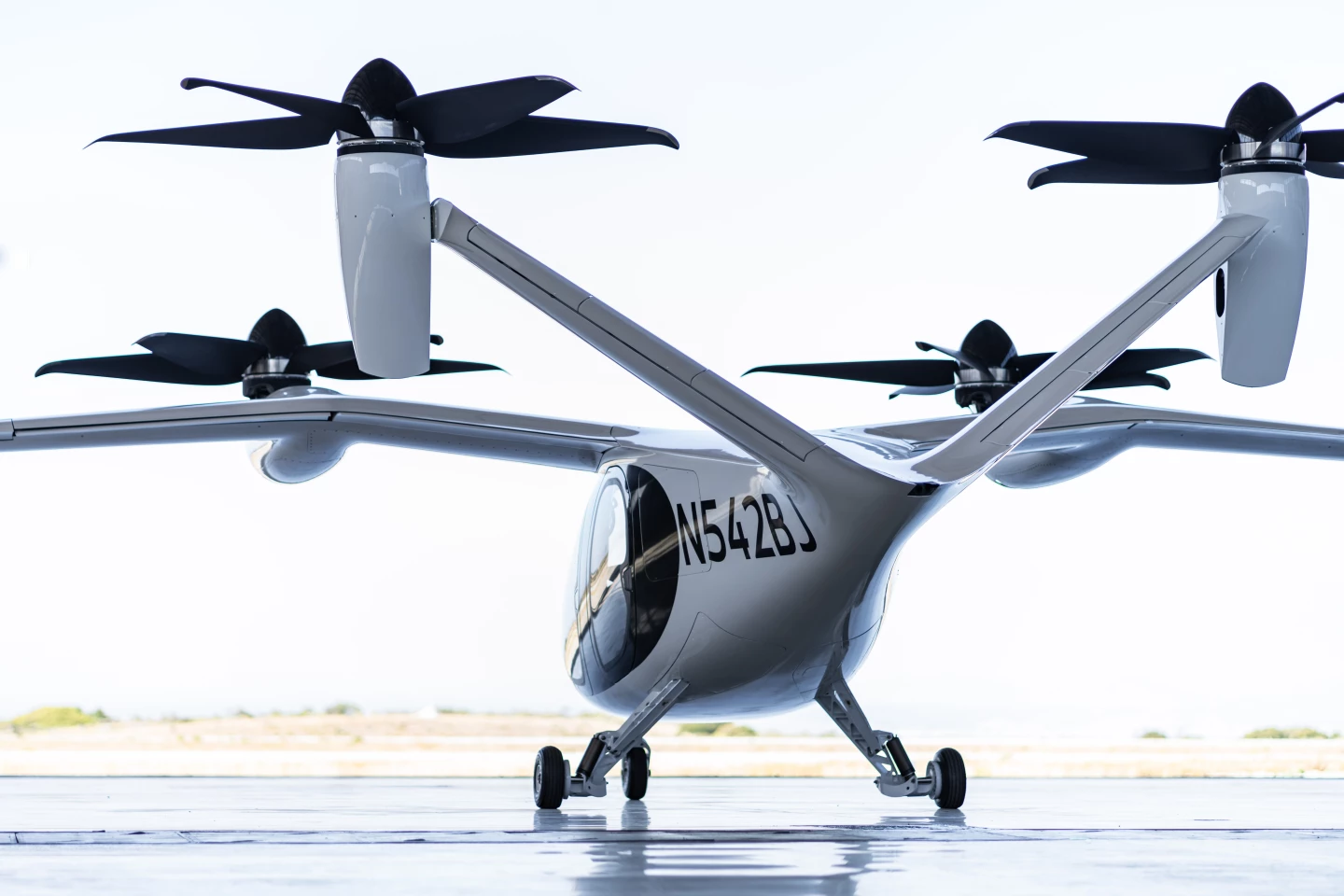Joby Aviation has announced it's back in the air after crashing one of its two tilt-rotor eVTOL prototypes during testing in February. The company says it's continued making progress on multiple fronts of the labyrinthine task of FAA certification during its downtime.
Joby voluntarily paused test flights with its second pre-production prototype after the first was presumably destroyed in an unmanned crash, but its internal safety review board has given the green light to resume testing. Data from flight trackers suggests the incident happened at the outer edges of the aircraft's flight envelope, but the company is releasing no further information until FAA and NTSB investigations are complete.
The second aircraft, meanwhile, has made 38 flights in total, at speeds up to 90 mph. “We’re excited to be back in the air with our second pre-production prototype aircraft, building on the tremendous flight test achievements our team has made to date,” said Didier Papadopoulos, Head of Programs and Systems at Joby. “Last year alone, we flew more than 5,300 miles, generating 65 terabytes of flight test data and demonstrating an endurance of 154.6 miles on a single charge.”

During the testing hiatus, Joby continued the relentless march toward multiple forms of FAA certification, making several announcements on this front. Firstly, the company has reached stage 4 of 5 in its Part 135 Air Carrier certificate, a process involving a giant stack of paperwork, processes, training, maintenance and operations manuals which will allow Joby to operate its own air taxi service, scheduled to begin in 2024. It expects to have this certificate by the end of the year.
Secondly, it announced the completion and approval of its first Systems Review and Compliance review. This is the FAA giving its thumbs-up to say Joby's engineering and development practices are up to aerospace standards, they're generating all the right data to take into the type certification process, and effectively setting the company up properly to develop and manufacture approved aircraft.
Thirdly, on the aircraft type certification front, the company announced what it believes is the eVTOL industry's first "area-specific certification plan." While the full FAA certification conditions for the S4 eVTOL aircraft are still only around 70 percent settled, Joby has decided essentially to break the type certification up into smaller chunks, demonstrating its compliance with the standards that are available in order to accelerate the overall timeframe. Thus, it's submitted a certification plan for its first area: "cabin safety, comprising the integrity of materials, seats and occupant restraints used in the interior of the aircraft," and will continue to submit more of these plans in the coming months.

In its shareholder letter for Q4 2021, the company revealed its workforce has expanded to more than 1,000 employees, 100 of which are certification specialists. Its first "production-intent" aircraft is being built at a pilot manufacturing facility in Marina, California, using automated fiber placement robots and additive manufacturing processes, and Joby expects it to fly before the end of 2022. The company started 2022 with an impressive $1.3 billion war chest, and expects to spend between US$340-360 million in 2022 on "operating activities and purchases of property and equipment."
Source: Joby Aviation








